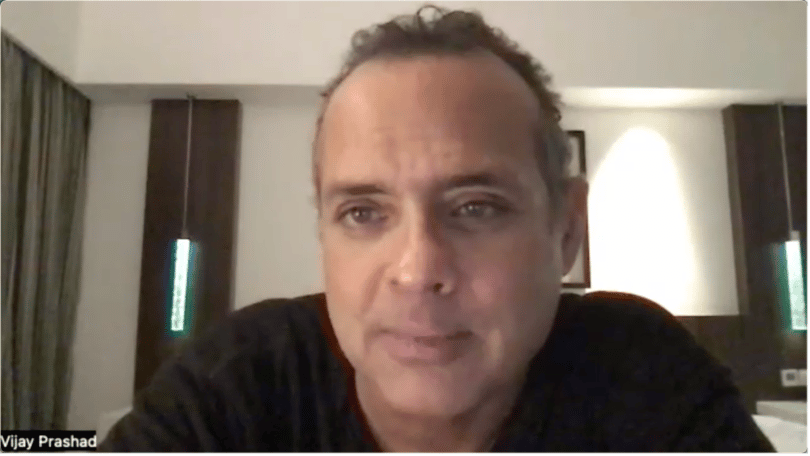MONTHLY REVIEW

As a “civilizational state”, China has demonstrated through its unique history and development that developing countries can forge a development path different from that of the West, and at the same time construct a discourse that is different from that of the Western nation-state.
That said, can other ancient civilizations with a long history also be called “civilizational states”? What is the uniqueness of China as a “civilizational state”?
Following the interviews with Zhang Weiwei, director of the China Institute at Fudan University, and Martin Jacques, former senior fellow of the Department of Politics and International Studies at Cambridge University, Guancha.cn (????) invited Vijay Prashad, executive director of the Tricontinental: Institute for Social Research, to continue the discussion on the “civilizational state”. As an Indian scholar, Vijay delves into why India cannot be described as a “civilizational state” from a comparative perspective, and how China, as a “civilizational state”, has integrated its own history with socialism.
[Interview and Translation by Guo Han from Guancha.cn]
Guancha.cn: How do you understand the concept of the “civilizational state”?
Vijay: The “civilizational state” in fact contains two sub-concepts, namely “civilization” and “state”. The concept of the “state” is an interesting one, which has existed since ancient times. Now in the 21st century, we do not deliberately mention it, but automatically think that the “state” has a prefix called “modern”. So today we are actually talking about the ” (modern) civilizational state”. We assume that the concept of “state” has an element of modernity in it.
How should the modern state be understood? From the perspective of world history, human beings gradually integrated into increasingly large communities with increasingly complex forms of organization. People chose to accept the monopoly of violence by the form of the state—rather than by ordinary individuals—and thus the modern state was born: a series of laws and regulations were established through procedures to guide people’s life. Essentially, the state is a form of governance that organizes daily life through procedures such as laws and regulations. This is a common understanding of the modern state. Some of these laws have socialist overtones and were achieved only through the great struggle of previous generations.
For example, a law can be introduced demanding that everyone shall be free from scarcity and guaranteeing the population’s right to food, medicine and housing. So, some modern countries have some socialist characteristics, and some don’t. It depends on the laws and regulations that are acceptable in their respective countries.
The concept of the state is basically about how we build institutions and organize the functioning of society. I think it is important to clarify in advance that when Mr. Zhang Weiwei elaborates on the concept of the “civilizational state”—I read his book in English—he is talking about the modern state rather than the state in the abstract sense.
Civilization, on the other hand, is a more complex concept. Considering the world as a whole, human beings have created different societies, each with its own unique history, and social life across the world is full of diversity, which we call different civilizations. For example, we can discuss the origins of Chinese civilization, can it be traced back to the ancient times? Or did it start from the Qin dynasty (221-207BCE)? Or even from the Xinhai Revolution in 1911?
India is such a complex civilization, with 50 to 2,000 different languages, which enriches India’s understanding of its past, such as the hierarchical cultural forms of Indian civilization, the caste system, etc. There are many different cultures in Europe, but they all center around a fundamental “axis of civilization”, that is, the “Judeo-Christian tradition”. The nation-state system in Europe also took shape after the Roman Empire.
I believe that Professor Zhang has developed Professor Lucian Pye’s view. The “civilizational state” that the two professors talk about is actually not the same concept. Professor Zhang is concerned with contradictions and dialectical relations. That is, the peculiarities of China’s history and an absolutely interesting phenomenon—the flowering of socialism in a land called China. The peculiarities of Chinese history and the unique characteristics of Chinese socialism, which he tries to combine, is how I understand the “civilizational state”.

Monthly Review Online for more
